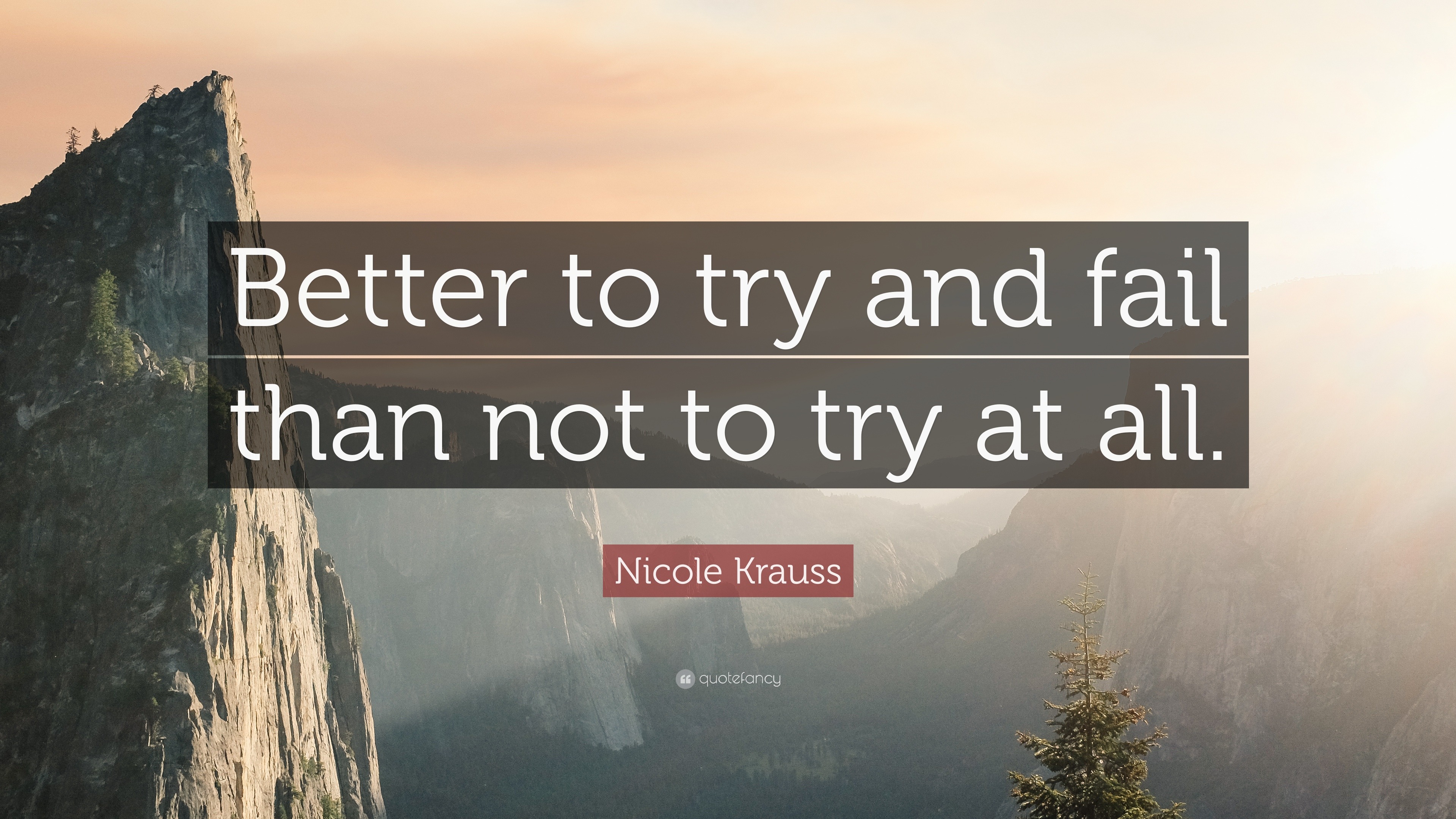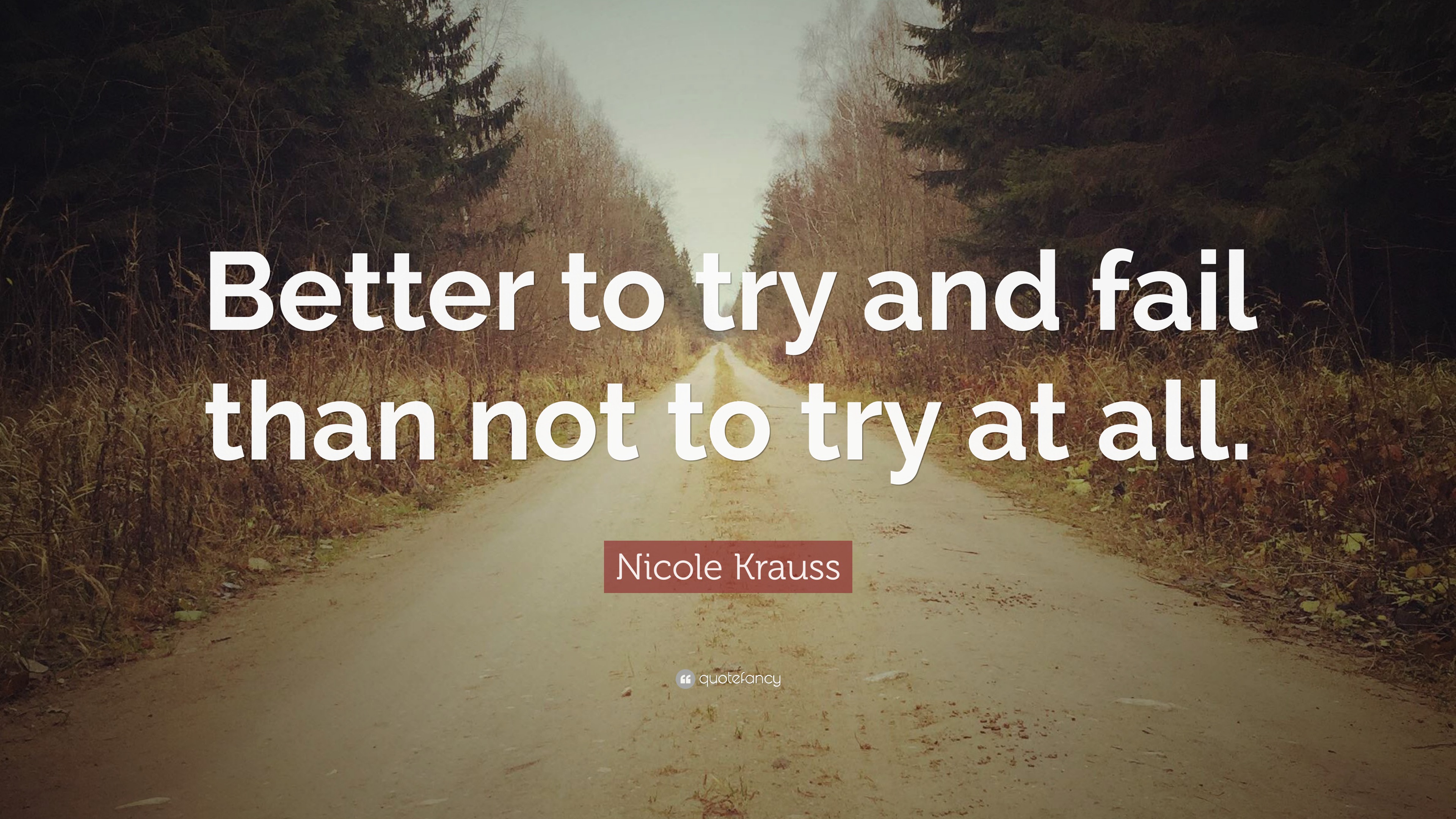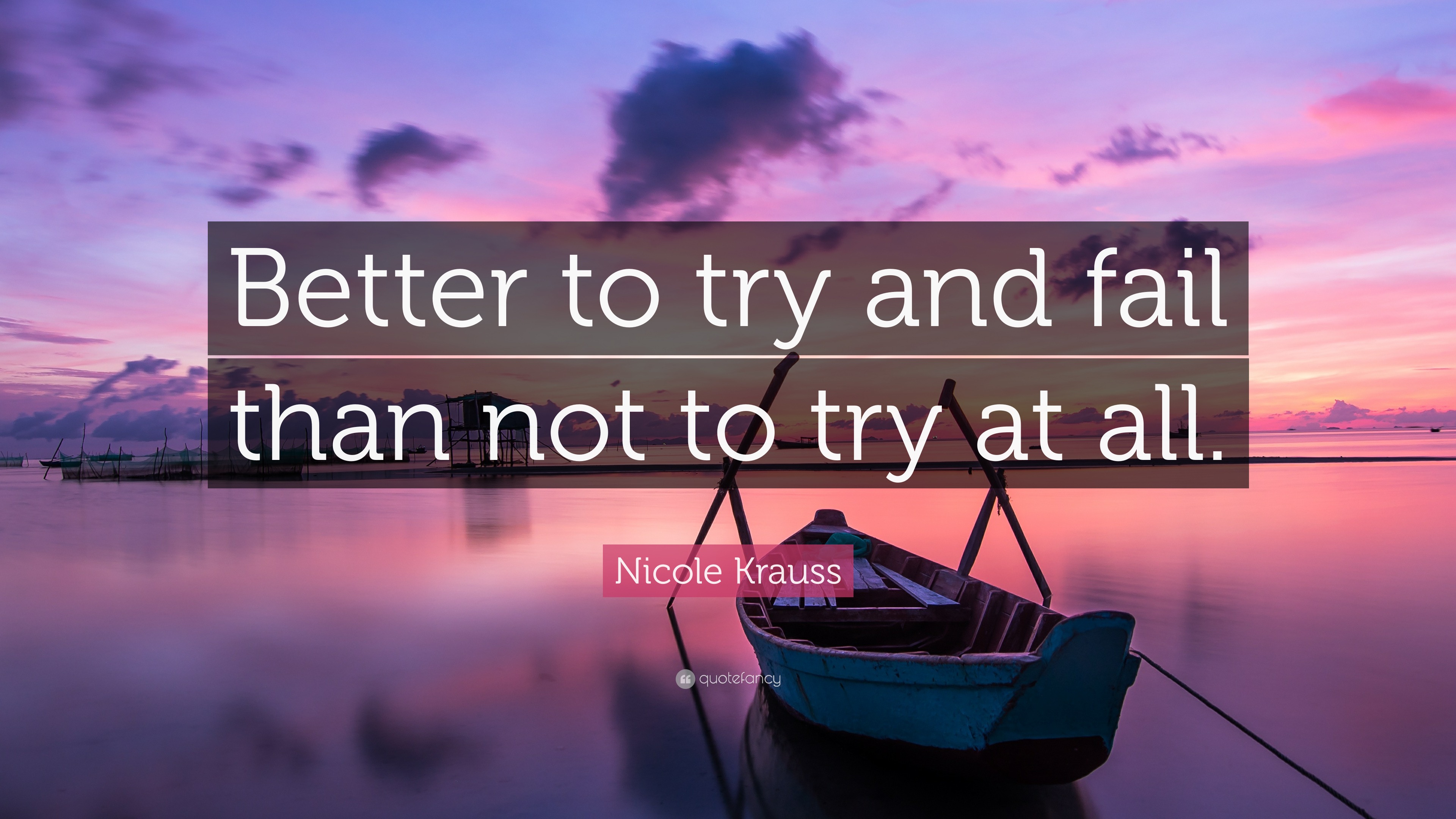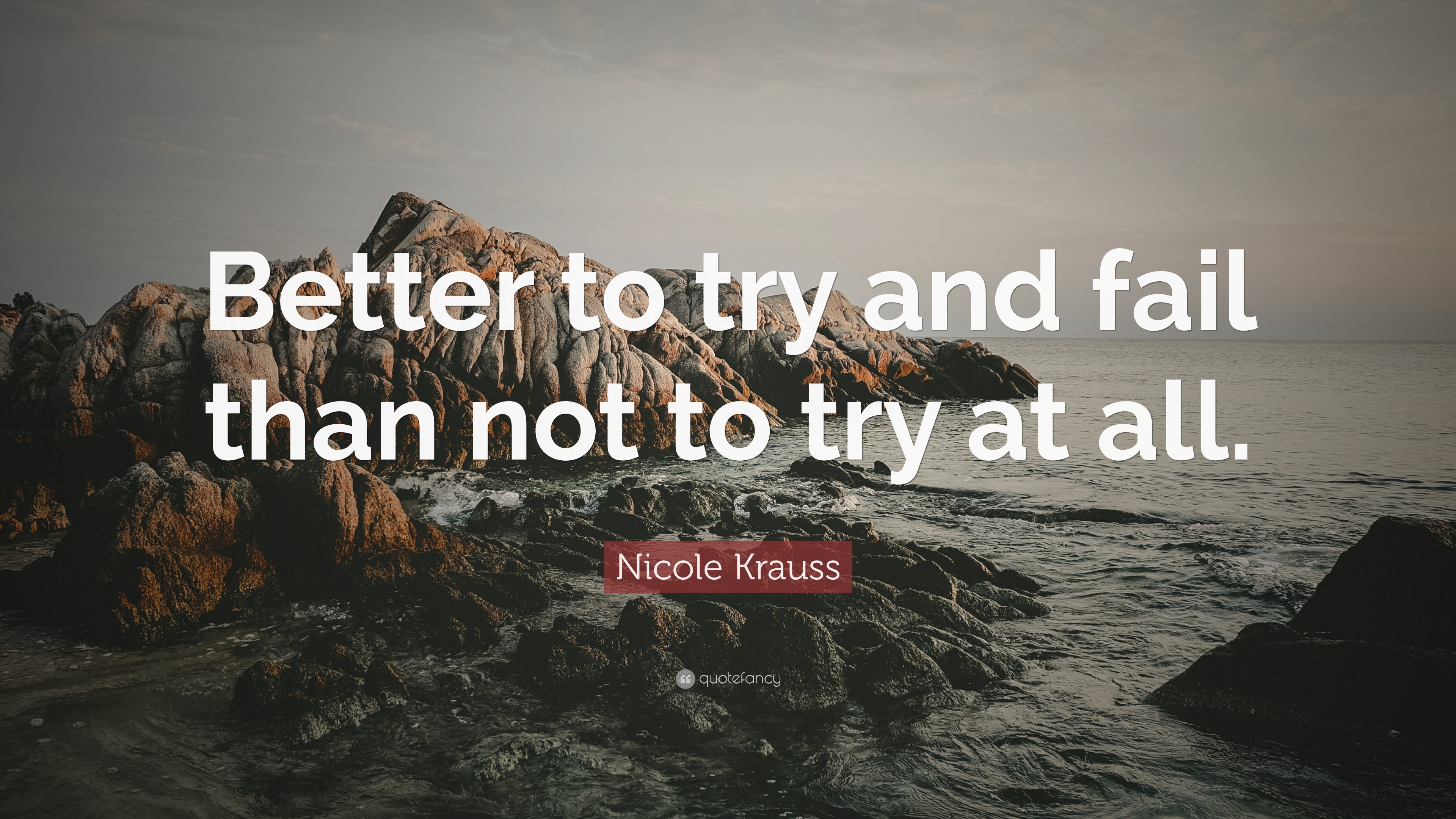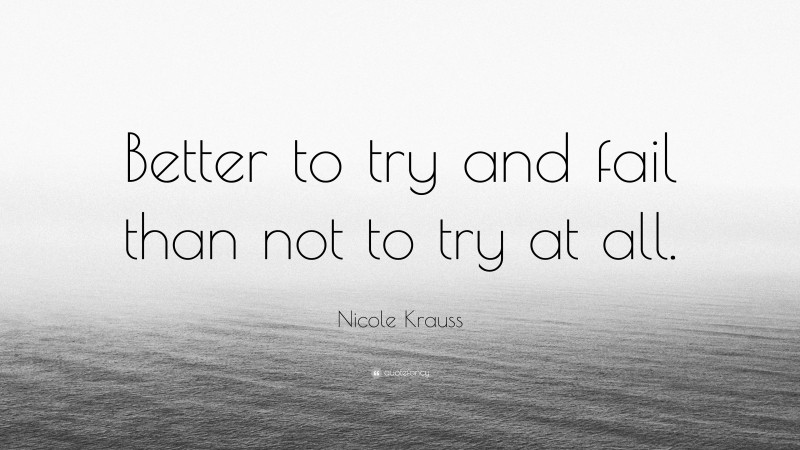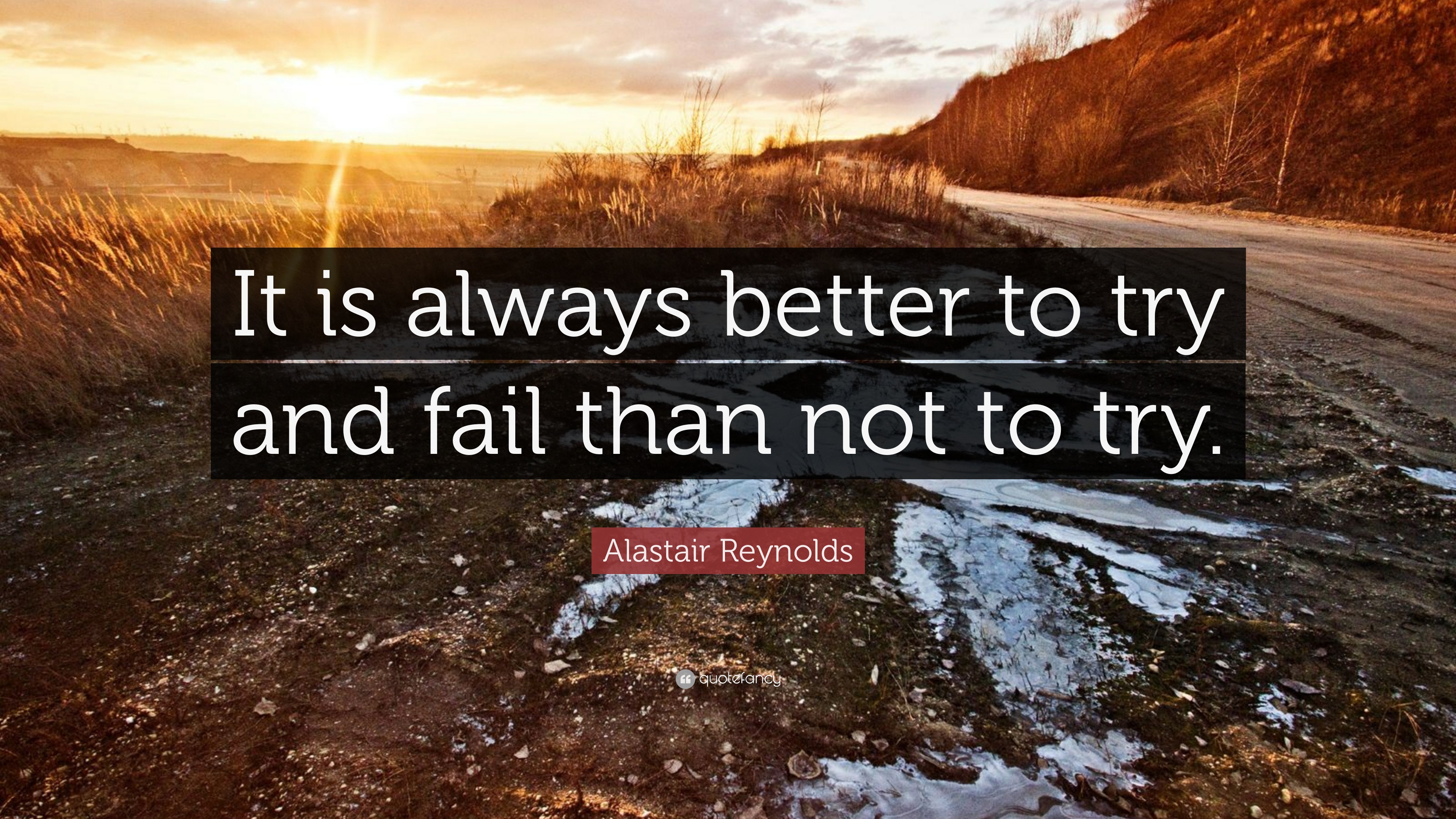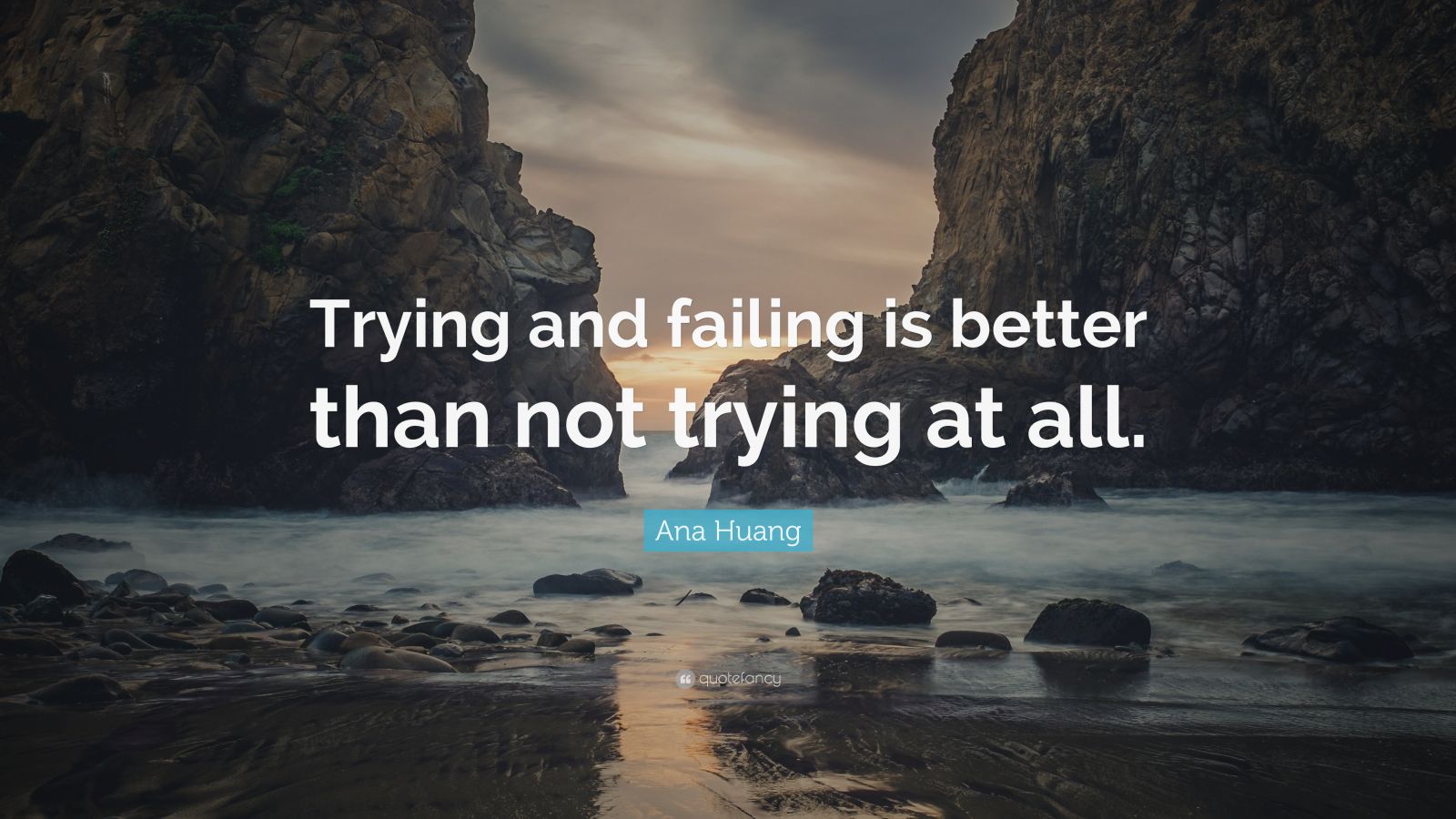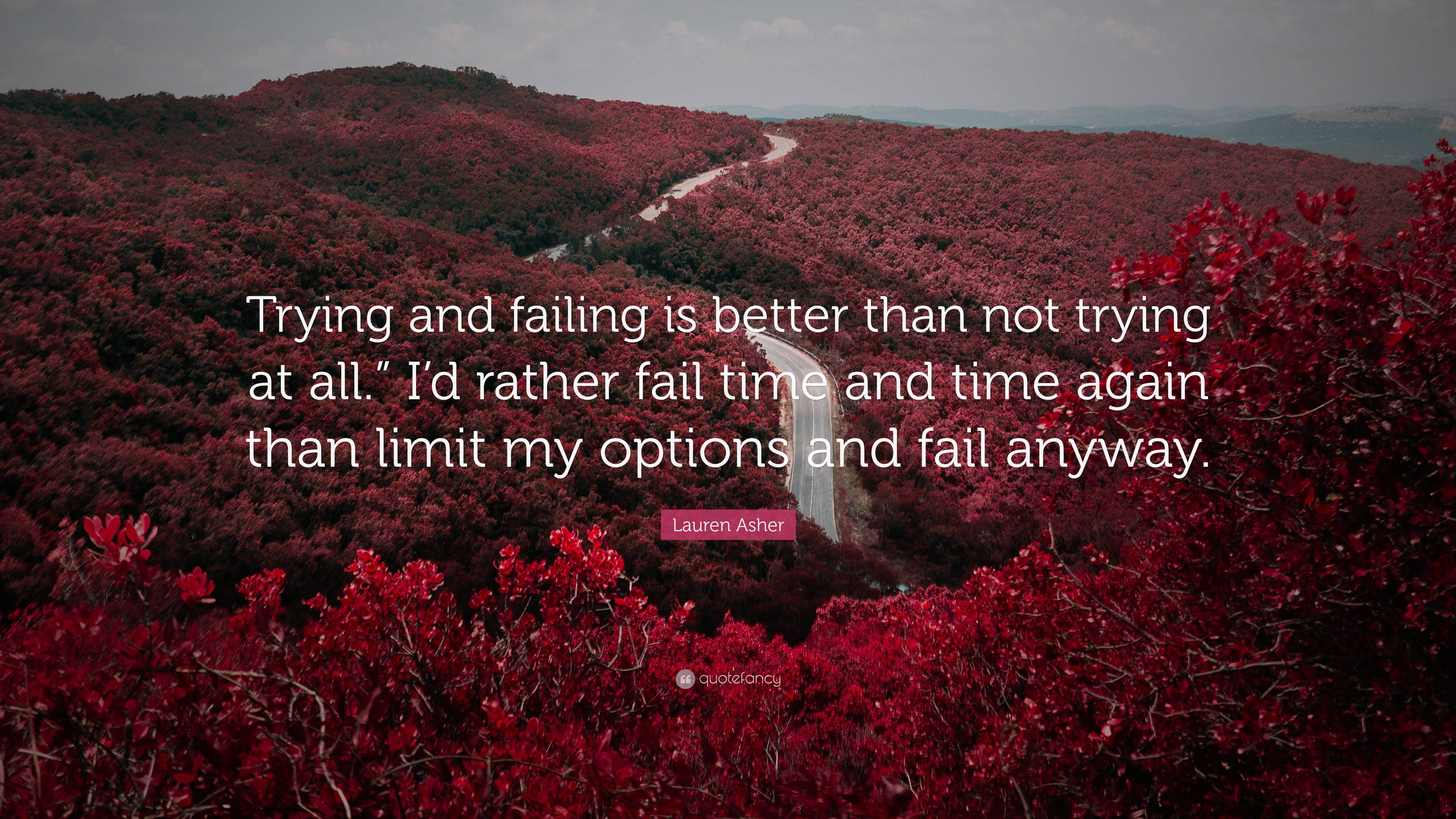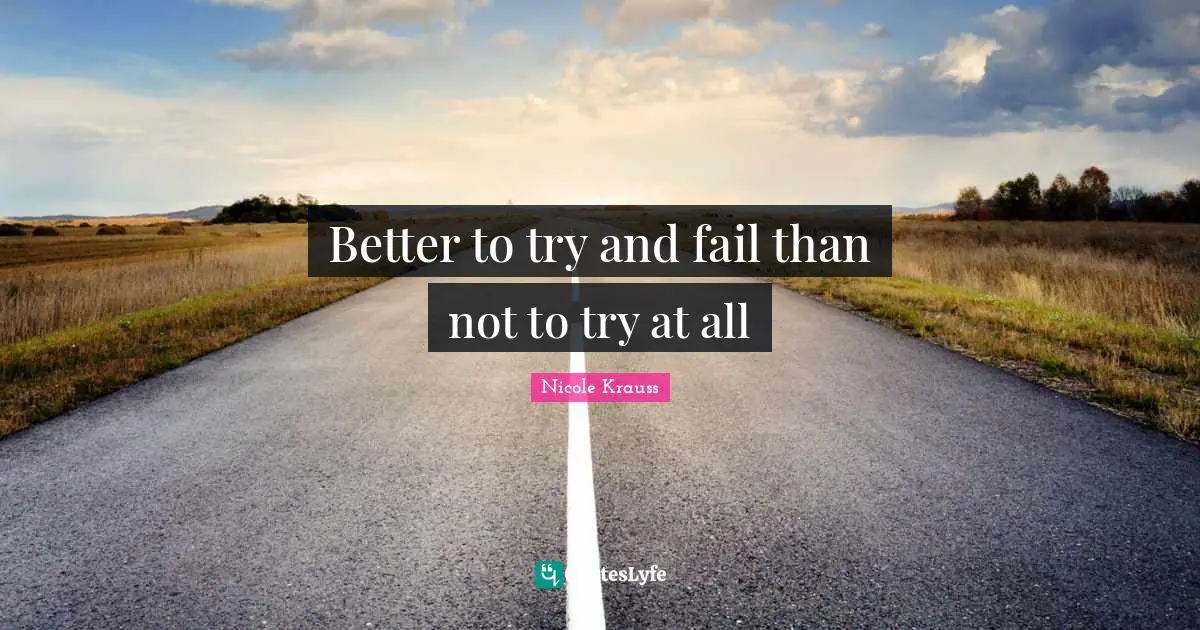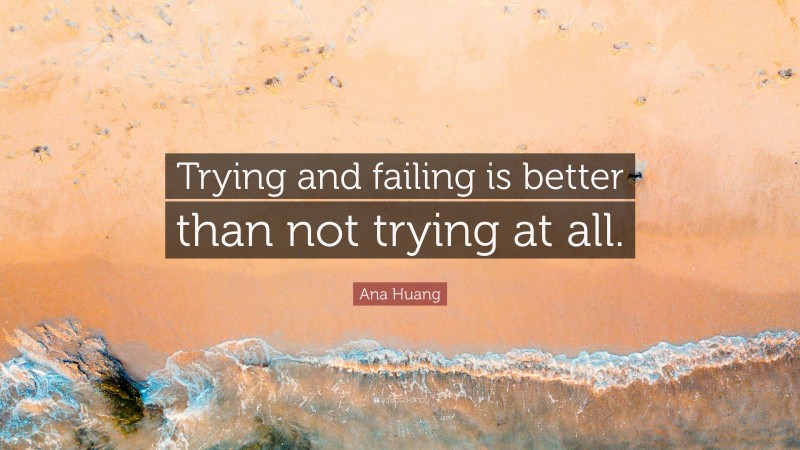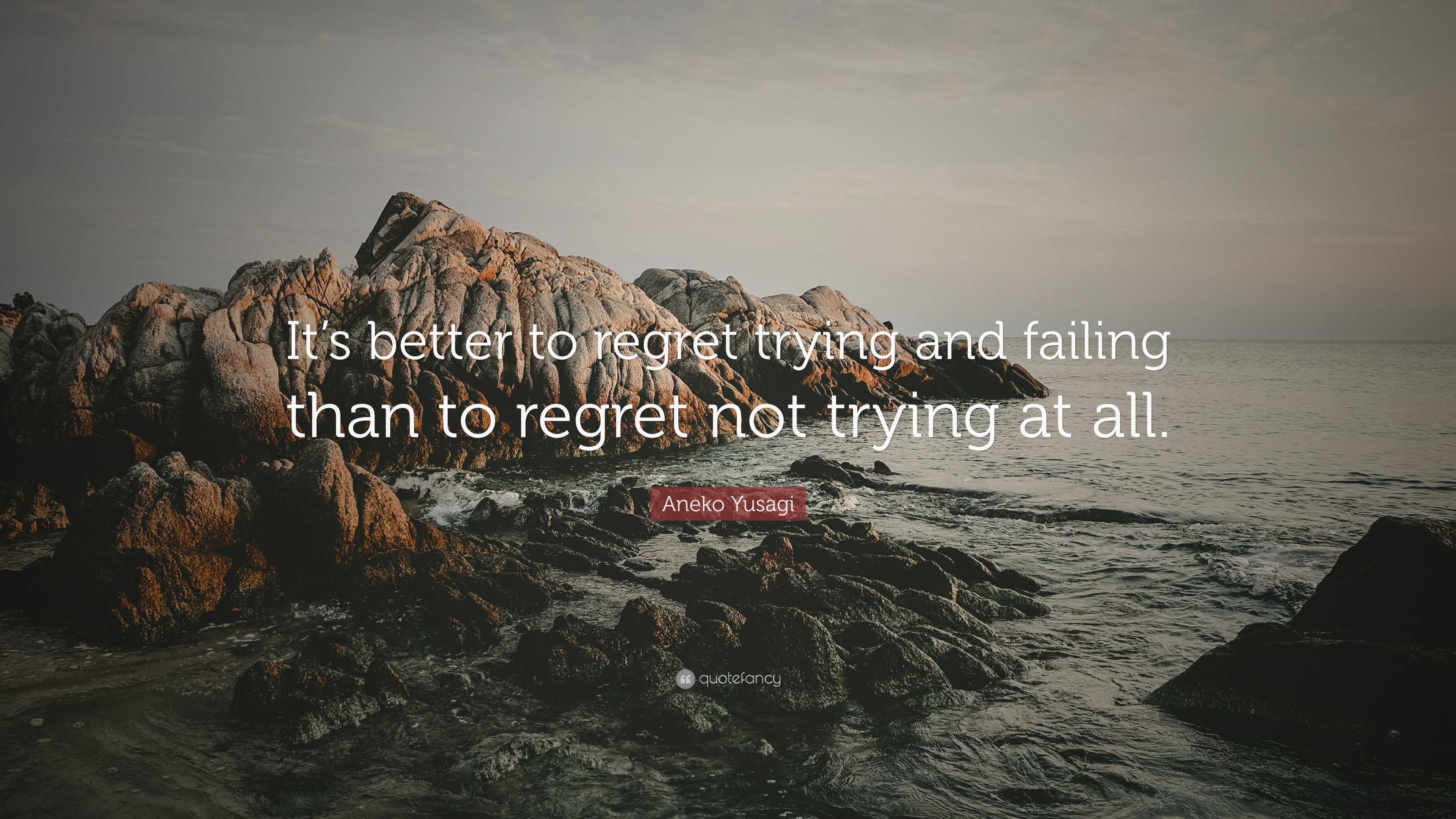Better To Try And Fail Than Not Try At All
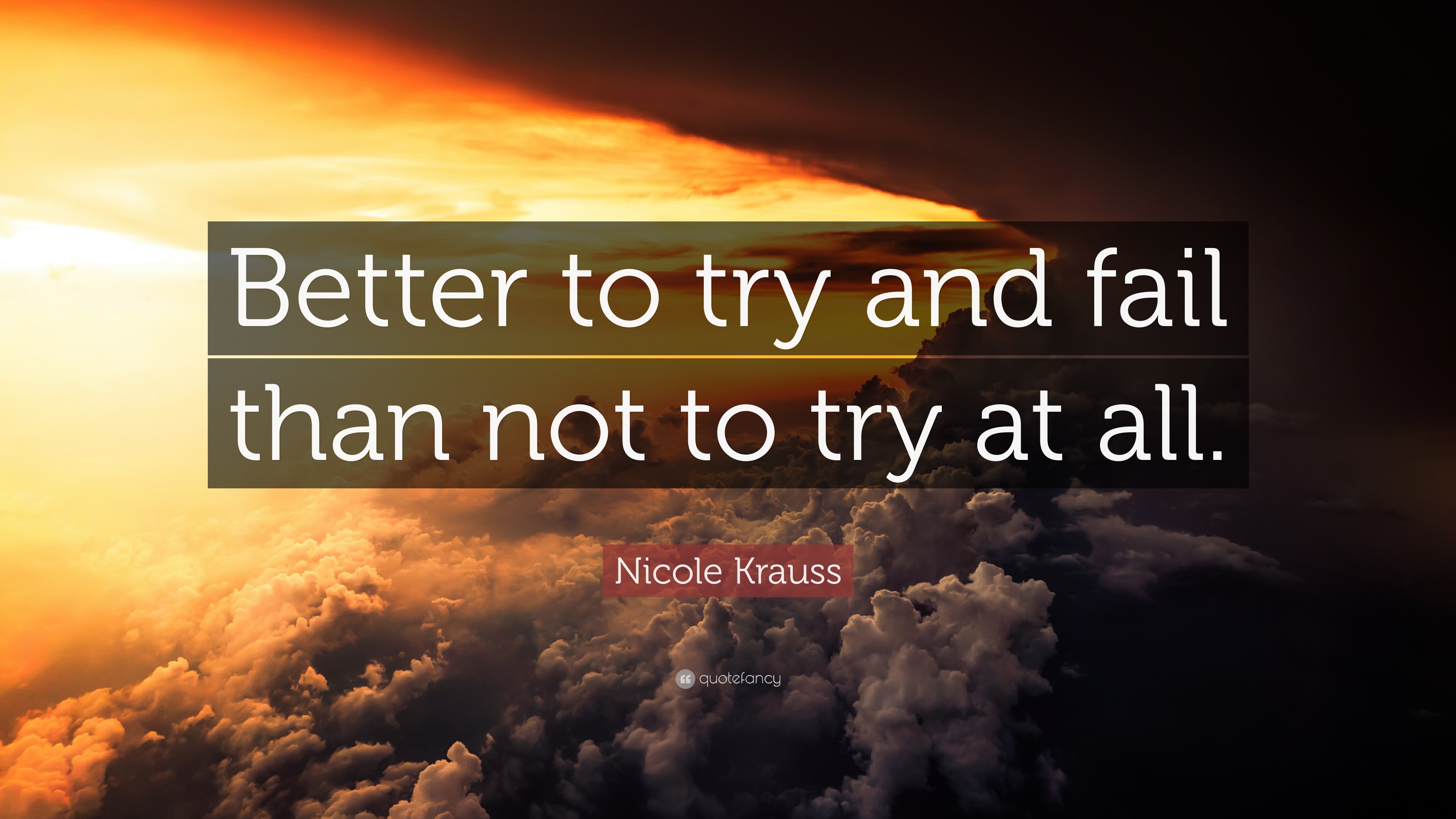
The chilling effect of fear permeates society, hindering innovation, stifling personal growth, and ultimately, preventing progress. How many potential breakthroughs remain undiscovered, innovations unborn, and dreams unachieved simply because of the fear of failure? This paralyzing fear has far-reaching consequences on individuals, organizations, and even entire economies.
At its core, the adage "better to try and fail than not try at all" encapsulates the vital importance of embracing risk and learning from setbacks. This article explores the profound implications of this philosophy, examining its impact on innovation, personal development, and societal advancement, while also acknowledging the potential downsides and the need for calculated risk-taking.
The Catalyst for Innovation
Innovation thrives on experimentation, and experimentation inherently involves the possibility of failure. Thomas Edison's legendary persistence in developing the lightbulb, marked by countless failed attempts, exemplifies this principle. Each unsuccessful experiment provided valuable data, guiding him closer to his ultimate success.
The modern tech industry, particularly Silicon Valley, has embraced a culture that normalizes failure. Companies like Google and Facebook encourage employees to experiment and take risks, understanding that some failures are inevitable. These failures are seen as learning opportunities, fueling future innovation and preventing stagnation.
Furthermore, venture capitalists often look for entrepreneurs who have experienced failure, believing that these individuals possess valuable lessons and a greater understanding of the market. This acceptance of failure as a learning tool is critical for fostering a vibrant and innovative ecosystem. Data from the National Venture Capital Association consistently shows that serial entrepreneurs, those with prior failed ventures, often secure funding more easily than first-time founders.
Personal Growth and Resilience
Beyond its impact on innovation, embracing the possibility of failure is crucial for personal growth. Stepping outside one's comfort zone and attempting new challenges, even in the face of potential setbacks, builds resilience and self-confidence. Overcoming failure fosters a sense of accomplishment and provides valuable life lessons.
Psychologists emphasize the importance of developing a growth mindset, which involves viewing challenges as opportunities for learning and growth. A fixed mindset, on the other hand, can lead to fear of failure and avoidance of new experiences. Studies published in the journal of Psychological Science demonstrate a strong correlation between a growth mindset and increased resilience in the face of adversity.
Moreover, facing failure head-on can lead to a deeper understanding of one's strengths and weaknesses. This self-awareness is essential for personal development and allows individuals to make informed decisions about their future endeavors. Learning from failures is arguably more valuable than basking in the glow of effortless success.
Societal Advancement and Progress
Throughout history, many societal advancements have been driven by individuals who dared to challenge the status quo and risk failure. From scientific breakthroughs to social movements, progress often requires taking risks and pushing boundaries. The abolitionist movement, for instance, faced significant opposition and setbacks, but its unwavering commitment ultimately led to the end of slavery.
In the realm of public health, numerous initiatives have been launched with the intention of improving population health outcomes. While not all of these initiatives have been successful, even the unsuccessful ones have contributed to a greater understanding of the challenges and potential solutions. The World Health Organization continually assesses the effectiveness of various public health interventions, using data from both successful and unsuccessful programs to inform future strategies.
Ultimately, a society that embraces risk-taking and learns from its mistakes is more likely to achieve progress and create a better future. A culture that punishes failure can stifle innovation and prevent individuals from reaching their full potential.
The Importance of Calculated Risks
While embracing the possibility of failure is important, it is equally important to emphasize the need for calculated risks. Reckless disregard for potential consequences can lead to disastrous outcomes. A thorough risk assessment is crucial before embarking on any new endeavor.
This involves carefully evaluating the potential benefits and costs, as well as identifying potential obstacles and developing contingency plans. Effective risk management is essential for maximizing the chances of success and minimizing the potential for harm.
Furthermore, it is important to learn from the failures of others. Studying past mistakes can help individuals avoid repeating them and make more informed decisions. By understanding the factors that contributed to past failures, individuals can increase their chances of success in the future.
"Success is not final, failure is not fatal: It is the courage to continue that counts." - Winston Churchill
Looking Forward
The message "better to try and fail than not try at all" needs to be continually reinforced across all sectors of society. Educational institutions should foster a culture of experimentation and learning from mistakes. Businesses should encourage employees to take risks and embrace innovation.
Individuals should be encouraged to pursue their passions and not be afraid to fail. By embracing a growth mindset and developing resilience, individuals can overcome setbacks and achieve their goals. The future belongs to those who are willing to take risks and learn from their mistakes.
By creating a society that embraces failure as a learning opportunity, we can unlock human potential and create a brighter future for all. This requires a fundamental shift in mindset, from one of fear and avoidance to one of courage and resilience.
